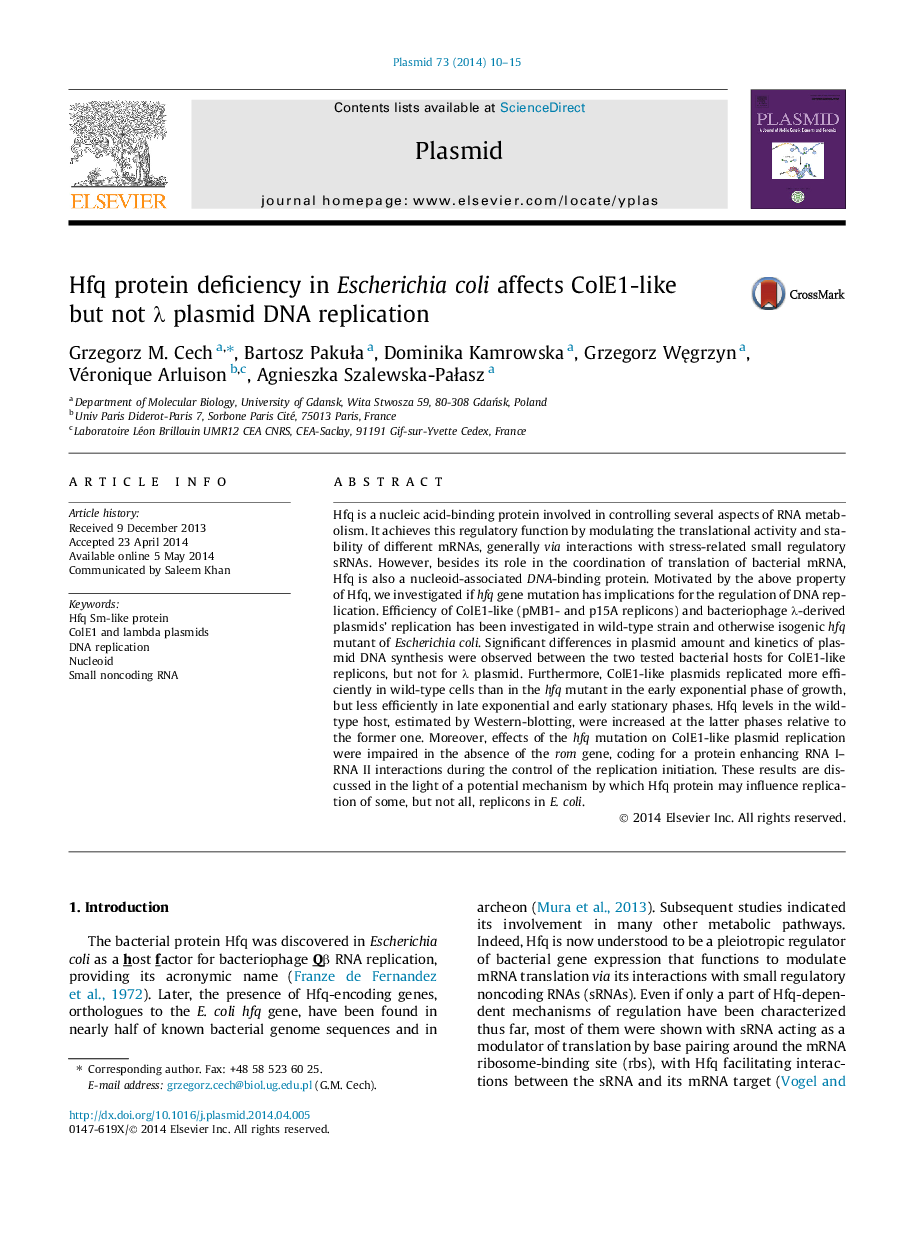| Article ID | Journal | Published Year | Pages | File Type |
|---|---|---|---|---|
| 2824091 | Plasmid | 2014 | 6 Pages |
•Lack of Hfq affects ColE1-like plasmid DNA replication in Escherichia coli.•Absence of the rom gene impairs effects of the hfq mutation on ColE1-like plasmid replication.•The hfq dysfunction has little effect on λ plasmid replication.•Hfq level rises at late exponential and early stationary phases of bacterial growth.
Hfq is a nucleic acid-binding protein involved in controlling several aspects of RNA metabolism. It achieves this regulatory function by modulating the translational activity and stability of different mRNAs, generally via interactions with stress-related small regulatory sRNAs. However, besides its role in the coordination of translation of bacterial mRNA, Hfq is also a nucleoid-associated DNA-binding protein. Motivated by the above property of Hfq, we investigated if hfq gene mutation has implications for the regulation of DNA replication. Efficiency of ColE1-like (pMB1- and p15A replicons) and bacteriophage λ-derived plasmids’ replication has been investigated in wild-type strain and otherwise isogenic hfq mutant of Escherichia coli. Significant differences in plasmid amount and kinetics of plasmid DNA synthesis were observed between the two tested bacterial hosts for ColE1-like replicons, but not for λ plasmid. Furthermore, ColE1-like plasmids replicated more efficiently in wild-type cells than in the hfq mutant in the early exponential phase of growth, but less efficiently in late exponential and early stationary phases. Hfq levels in the wild-type host, estimated by Western-blotting, were increased at the latter phases relative to the former one. Moreover, effects of the hfq mutation on ColE1-like plasmid replication were impaired in the absence of the rom gene, coding for a protein enhancing RNA I–RNA II interactions during the control of the replication initiation. These results are discussed in the light of a potential mechanism by which Hfq protein may influence replication of some, but not all, replicons in E. coli.
